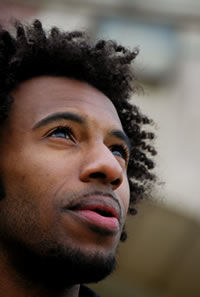A murder of crows for the many
whose blood vessels will be shred
by barrel bombs’ shrapnel—the intent to maim
without exclusion. A murder of crows
for each mother and father who pawns all
except what will cover their backs
so they may join the thousands
driven into exasperated seas
to shirk their turn at becoming
casualties. A murder of crows
for the tiny bodies those seas swallow.
And do you see? A murder
of crows for those of us with eyes
keen yet uncurious. A murder of crows
for those who cooperate
and are slaughtered nonetheless.
And do you see the sky? A murder of crows
for those well aware of how easily
rights to a homeland can be voided
by militias adorned with flags and royal
rifles. A murder of crows for those
who have never worn a uniform but have
had war waged against them. A murder of
crows for a uranium pact feared fragile.
A murder of crows for the airmen who study
display screens on an armed force base,
waiting to tap triggers that incinerate
bodies in another hemisphere. A murder
of crows for the downed pilot—his parachute
guiding him into a lake where he is rescued
then burned alive for the camera. And do you see
the sky feathering in iridescent, dark—
how it does not resemble the sky you know?
It is the only sky the many have seen
for years. What little light in condolences
you offer—you, like it or not,
born with bread in your fists,
born adorably feeding the crows
the way your father fattened the crows
and his father fattened the crows. When
the murders of crows arrive broad
as a giant black stork, they claw apart
the hospitals, the nesting beds.
They bundle the last obstetrician in rubble
then soar up to perch above
the scrum, blocking the sunlight.
When the first mother abandoned during labor
breaks—when her bloody yolk runs
and makes a mud of all the dust—no longer
is there a murder. A birth: the debris and rust
tinged clay shape themselves into an unforgiving
mountain—a new scar we give the earth’s
flesh. And sometimes a scar
marks healing. And sometimes a scar can
only remind you what burned, what was
severed, what had to flee
a body—to be beheld never again.
